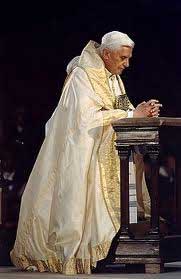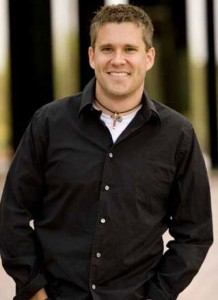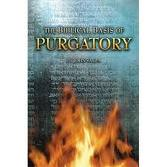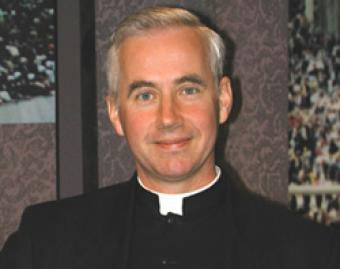 What a delight to discuss our ongoing call to conversion with Fr. C. John McCloskey III especially as demonstrated by the hundreds of lives shared in”The Mississippi Flows Into the Tiber: A Guide to Notable American Converts to the Catholic Church” . The book, which contains a foreword and afterword by Fr. McCloskey, examines the careers and writings of almost five hundred notable converts, containing touching stories of all shapes and sizes. English author John Beaumont, after the success of his initial book “Roads to Rome”, has brought to us an exhaustive, fascinating work that inspires with every page.
What a delight to discuss our ongoing call to conversion with Fr. C. John McCloskey III especially as demonstrated by the hundreds of lives shared in”The Mississippi Flows Into the Tiber: A Guide to Notable American Converts to the Catholic Church” . The book, which contains a foreword and afterword by Fr. McCloskey, examines the careers and writings of almost five hundred notable converts, containing touching stories of all shapes and sizes. English author John Beaumont, after the success of his initial book “Roads to Rome”, has brought to us an exhaustive, fascinating work that inspires with every page.
[powerpress]
You can find the book here
“[A]n inspiring work that covers nearly five hundred eminent American converts who lived from the 17th to the 21st century. In each of these entries, which are in alphabetical order, we find a succinct biography and, when known, one or more causes of conversion, often in the person’s own words. The entries range from part of a page to several pages, with citations from the subjects’ writings. A list of sources is also provided. This book will surely prove to be an invaluable reference work, but more importantly, it is a collection of priceless testimonies, well worth pondering at leisure.”
–Anne Barbeau Gardiner, Culture Wars.
Tags: catholic, catholic podcast, catholic prayer, cathollc spirituality
This entry was posted on Thursday, November 20th, 2014 at 3:29 pm
You can follow any responses to this entry through the RSS 2.0 feed.
Episode 31- The Holy Rule of St. Benedict: A Spiritual Path for Today’s World with Fr. Mauritius Wilde O.S.B., 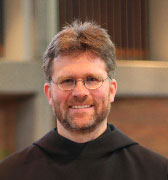 PhD.
PhD.
“The Life of St. Benedict pt 4”
We continue our conversation on the life of St. Benedict by using the biography penned by St. Gregory the Great. This episode St. Benedict is visited a priest on Easter Sunday morning in the cave and is called from his seclusion.
[powerpress]
From the Life of Our Most Holy Father St. Benedict by St. Gregory the Great:
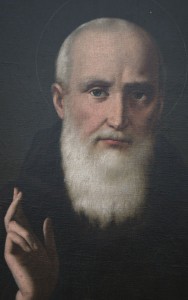
 CHAPTER I.
Now when it pleased Almighty God that Romanus should rest from his labours, and that the life of Benedict should be manifest to the world for an example to all men, that the candle set upon a candlestick might shine and give light to the whole Church of God, our Lord vouchsafed to appear to a certain Priest living far off, who had make ready his dinner for Easter Day, saying to him: “Thou hast prepared good cheer for thyself, and My servant in such a place is famished for hunger.†Who presently rose up, and on the solemn day of Easter went towards the place with such meat as he had provided for himself, where seeking the man of God, amongst craggy rocks, winding valleys and hollow pits he found him hid in a cave. Then after prayers, and blessing the Almighty Lord, they sat down, and after some spiritual discourse the Priest said: “Rise, and let us take our refection, for this is Easter Day.†To whom the man of God answered: “I know it is Easter, because I have found so much favour as to see thee.†(For not having a long time conversed with men, he did not know it was Easter Day.) The good Priest did therefore again affirm it, saying: “Truly this is the day of our Lord’s Resurrection, and therefore it is not fit that you should keep abstinence, and for this cause I am sent that we may eat together that which Almighty God hath bestowed on us.†Whereupon blessing God, they fell to their meat. Their discourse and dinner ended, the Priest returned to his Church.
 For more information about the ministry of the the Missionary Benedictines of Christ the King Priory in Schuyler, Nebraska visit here:
For more information about the ministry of the the Missionary Benedictines of Christ the King Priory in Schuyler, Nebraska visit here:
Tags: catholic, catholic podcast, catholic prayer, cathollc spirituality
This entry was posted on Tuesday, November 18th, 2014 at 12:22 pm
You can follow any responses to this entry through the RSS 2.0 feed.
Episode 3- The School of Prayer: Reflections on the teachings of Pope Benedict XVI –  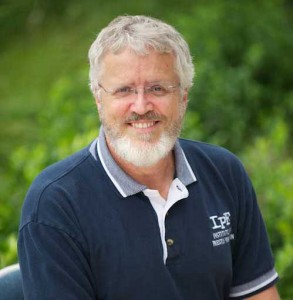 Abraham the great Patriarch who prays in intercession for Sodom and Gomorrah.  The mystery of intercessory prayer and God’s great mercy.  When we persist in prayer, like Abraham, the more we come to know God and trust in His love for us.  How sin corrupts our capacity to receive God’s movement of protection and love.  How the sacrifice of Christ opens the door to the mystery.  If we can learn how to pray, then we learn how to be loved.  How do we pray for others?
Abraham the great Patriarch who prays in intercession for Sodom and Gomorrah.  The mystery of intercessory prayer and God’s great mercy.  When we persist in prayer, like Abraham, the more we come to know God and trust in His love for us.  How sin corrupts our capacity to receive God’s movement of protection and love.  How the sacrifice of Christ opens the door to the mystery.  If we can learn how to pray, then we learn how to be loved.  How do we pray for others?
[powerpress]
Deacon James Keating, PhD, the director of Theological Formation for the Institute for Priestly Formation, located at Creighton University, in Omaha.
From  Pope Benedict’s 3 audience on prayer:
This is the power of prayer. For through intercession, the prayer to God for the salvation of others, the desire for salvation which God nourishes for sinful man is demonstrated and expressed. Evil, in fact, cannot be accepted, it must be identified and destroyed through punishment: The destruction of Sodom had exactly this function.
For more information on the “Institute of Priestly Formation†and for other material available by Deacon Keating, just click here
Don’t forget to pickup a copy of “Communion with Christ†, it is one of the best audio sets on prayer…ever!
Check out Deacon Keating’s “Discerning Heart†page
Tags: catholic, catholic podcast, catholic prayer, cathollc spirituality
This entry was posted on Tuesday, November 18th, 2014 at 11:12 am
You can follow any responses to this entry through the RSS 2.0 feed.
[powerpress]
Dr. Matthew Bunson discusses the life, times and teachings of St. Albert the Great
Born: 1193, Lauingen, Germany
Died: November 15, 1280, Cologne, Germany
Education: University of Padua
From Vatican.va, an excerpt from the teachings of Pope Benedict XVIÂ
From the General Audience on St. Albert the Great
One of the great masters of medieval theology is St Albert the Great. The title “Great”, (Magnus), with which he has passed into history indicates the vastness and depth of his teaching, which he combined with holiness of life. However, his contemporaries did not hesitate to attribute to him titles of excellence even then. One of his disciples, Ulric of Strasbourg, called him the “wonder and miracle of our epoch”.
He was born in Germany at the beginning of the 13th century. When he was still young he went to Italy, to Padua, the seat of one of the most famous medieval universities. He devoted himself to the study of the so-called “liberal arts”: grammar, rhetoric, dialectics, arithmetic, geometry, astronomy and music, that is, to culture in general, demonstrating that characteristic interest in the natural sciences which was soon to become the favourite field for his specialization. During his stay in Padua he attended the Church of the Dominicans, whom he then joined with the profession of the religious vows. Hagiographic sources suggest that Albert came to this decision gradually. His intense relationship with God, the Dominican Friars’ example of holiness, hearing the sermons of Blessed Jordan of Saxony, St Dominic’s successor at the Master General of the Order of Preachers, were the decisive factors that helped him to overcome every doubt and even
to surmount his family’s resistence. God often speaks to us in the years of our youth and points out to us the project of our life. As it was for Albert, so also for all of us, personal prayer, nourished by the Lord’s word, frequent reception of the Sacraments and the spiritual guidance of enlightened people are the means to discover and follow God’s voice. He received the religious habit from Bl. Jordan of Saxony.
After his ordination to the priesthood, his superiors sent him to teach at various theological study centres annexed to the convents of the Dominican Fathers. His brilliant intellectual qualities enabled him to perfect his theological studies at the most famous university in that period, the University of Paris. From that time on St Albert began his extraordinary activity as a writer that he was to pursue throughout his life.
Prestigious tasks were assigned to him. In 1248 he was charged with opening a theological studium at Cologne, one of the most important regional capitals of Germany, where he lived at different times and which became his adopted city. He brought with him from Paris an exceptional student, Thomas Aquinas. The sole merit of having been St Thomas’ teacher would suffice to elicit profound admiration for St Albert. A relationship of mutual esteem and friendship developed between these two great theologians, human attitudes that were very helpful in the development of this branch of knowlege. In 1254, Albert was elected Provincial of the Dominican Fathers’ “Provincia Teutoniae” Teutonic Province which included communities scattered over a vast territory in Central and Northern Europe. He distinguished himself for the zeal with which he exercised this ministry, visiting the communities and constantly recalling his confreres to fidelity, to the teaching and example of St Dominic.
His gifts did not escape the attention of the Pope of that time, Alexander iv, who wanted Albert with him for a certain time at Anagni where the Popes went frequently in Rome itself and at Viterbo, in order to avail himself of Albert’s theological advice. The same Supreme Pontiff appointed Albert Bishop of Regensburg, a large and celebrated diocese, but which was going through a difficult period. From 1260 to 1262, Albert exercised this ministry with unflagging dedication, succeeding in restoring peace and harmony to the city, in reorganizing parishes and convents and in giving a new impetus to charitable activities.
In the year 1263-1264, Albert preached in Germany and in Bohemia, at the request of Pope Urban iv. He later returned to Cologne and took up his role as lecturer, scholar and writer. As a man of prayer, science and charity, his authoritative intervention in various events of the Church and of the society of the time were acclaimed: above all, he was a man of reconciliation and peace in Cologne, where the Archbishop had run seriously foul of the city’s institutions; he did his utmost during the Second Council of Lyons, in 1274, summoned by Pope Gregory X, to encourage union between the Latin and Greek Churches after the separation of the great schism with the East in 1054. He also explained the thought of Thomas Aquinas which had been the subject of objections and even quite unjustified condemnations.
He died in his cell at the convent of the Holy Cross, Cologne, in 1280, and was very soon venerated by his confreres. The Church proposed him for the worship of the faithful with his beatification in 1622 and with his canonization in 1931, when Pope Pius XI proclaimed him Doctor of the Church. This was certainly an appropriate recognition of this great man of God and outstanding scholar, not only of the truths of the faith but of a great many other branches of knowledge; indeed, with a glance at the titles of his very numerous works, we realize that there was something miraculous about his culture and that his encyclopedic interests led him not only to concern himself with philosophy and theology, like other contemporaries of his, but also with every other discipline then known, from physics to chemistry, from astronomy to minerology, from botany to zoology. For this reason Pope Pius XII named him Patron of enthusiasts of the natural sciences and also called him “Doctor universalis” precisely because of the vastness of his interests and knowledge.
For more visit Vatican.va
For more from Dr. Matthew Bunson check out his Discerning Hearts page
Dr. Matthew Bunson, Senior Fellow of the St. Paul Center for Biblical Theology, is one of the United States’ leading authorities on the papacy and the Church.
His books include: The Encyclopedia of Catholic History; The Encyclopedia of Saints; Papal Wisdom; All Shall Be Well; Encyclopedia of the Roman Empire; and The Angelic Doctor: The Life and World of St. Thomas Aquinas; The Pope Encyclopedia; We Have a Pope! Benedict XVI, the first Catholic biography of the Holy Father in the English language; the Encyclopedia of U.S. Catholic History; Pope Francis. His also the editor of OSV’s “The Catholic Answer” magazine.
Tags: catholic, catholic podcast, catholic prayer, cathollc spirituality
This entry was posted on Tuesday, November 18th, 2014 at 11:02 am
You can follow any responses to this entry through the RSS 2.0 feed.
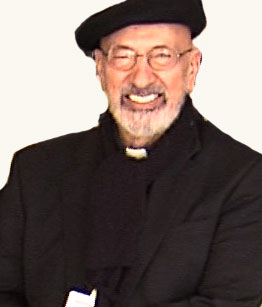 BKL 79 ” Building a Kingdom of Love” – “Are you the lazy servant?”  Msgr. Esseff helps us to see that the talents equals God’s love.  Knowing this, have you been the lazy servant?
BKL 79 ” Building a Kingdom of Love” – “Are you the lazy servant?”  Msgr. Esseff helps us to see that the talents equals God’s love.  Knowing this, have you been the lazy servant?
[powerpress]
Gospel MT 25:14-30
Jesus told his disciples this parable:
“A man going on a journey
called in his servants and entrusted his possessions to them.
To one he gave five talents; to another, two; to a third, one–
to each according to his ability.
Then he went away.
Immediately the one who received five talents went and traded with them,
and made another five.
Likewise, the one who received two made another two.
But the man who received one went off and dug a hole in the ground
and buried his master’s money.
After a long time
the master of those servants came back
and settled accounts with them.
The one who had received five talents came forward
bringing the additional five.
He said, ‘Master, you gave me five talents.
See, I have made five more.’
His master said to him, ‘Well done, my good and faithful servant.
Since you were faithful in small matters,
I will give you great responsibilities.
Come, share your master’s joy.’
Then the one who had received two talents also came forward and said,
‘Master, you gave me two talents.
See, I have made two more.’
His master said to him, ‘Well done, my good and faithful servant.
Since you were faithful in small matters,
I will give you great responsibilities.
Come, share your master’s joy.’
Then the one who had received the one talent came forward and said,
‘Master, I knew you were a demanding person,
harvesting where you did not plant
and gathering where you did not scatter;
so out of fear I went off and buried your talent in the ground.
Here it is back.’
His master said to him in reply, ‘You wicked, lazy servant!
So you knew that I harvest where I did not plant
and gather where I did not scatter?
Should you not then have put my money in the bank
so that I could have got it back with interest on my return?
Now then! Take the talent from him and give it to the one with ten.
For to everyone who has,
more will be given and he will grow rich;
but from the one who has not,
even what he has will be taken away.
And throw this useless servant into the darkness outside,
where there will be wailing and grinding of teeth.'”
Msgr. John A. Esseff is a Roman Catholic priest in the Diocese of Scranton. He was ordained on May 30th 1953, by the late Bishop William J. Hafey, D.D. at St. Peter’s Cathedral in Scranton, PA. Msgr. Esseff served a retreat director and confessor to Blessed Mother Teresa. He continues to offer direction and retreats for the sisters of the missionaries of charity around the world. Msgr. Esseff encountered St. Padre Pio, who would become a spiritual father to him. He has lived in areas around the world, serving in the Pontifical missions, a Catholic organization established by Bl. Pope John Paul II to bring the Good News to the world especially to the poor. Msgr. Esseff assisted the founders of the Institute for Priestly Formation and continues to serve as a spiritual director for the Institute. He continues to serve as a retreat leader and director to bishops, priests and sisters and seminarians and other religious leaders around the world.   To obtain a copy of Msgr. Esseff’s book by visiting here  Be sure to visit Msgr. Esseff’s website “Building a Kingdom of Love“
 To obtain a copy of Msgr. Esseff’s book by visiting here  Be sure to visit Msgr. Esseff’s website “Building a Kingdom of Love“
Tags: catholic, catholic podcast, catholic prayer, cathollc spirituality
This entry was posted on Monday, November 17th, 2014 at 2:58 pm
You can follow any responses to this entry through the RSS 2.0 feed.
 Episode 11 “What am I to do?†The Discernment of God’s Will in Everyday Decisions w/Fr. Timothy Gallagher.
Episode 11 “What am I to do?†The Discernment of God’s Will in Everyday Decisions w/Fr. Timothy Gallagher.
In this episode with Fr. Gallagher,  there is a brief summary of the First and Second Mode.  Then Fr. Gallagher breaks open the Third Mode, a Ponderousness of Reasons, also know as the 4 columns.
[powerpress]
For other episodes in the series visit The Discerning Hearts “Discerning the Will of God†page
Father Timothy M. Gallagher, O.M.V., was ordained in 1979 as a member of the Oblates of the Virgin Mary, a religious community dedicated to retreats and spiritual formation according to the Spiritual Exercises of St. Ignatius. Â Fr. Gallagher is featured on the EWTN series “Living the Discerning Life: Â The Spiritual Teachings of St. Ignatius of Loyola”.
For more information on how to obtain copies of Fr. Gallaghers’s various books and audio which are available for purchase, please visit  his  website:   frtimothygallagher.org
For the other episodes in this series check out Fr. Timothy Gallagher’s “Discerning Hearts†page
Tags: catholic, catholic podcast, catholic prayer, cathollc spirituality
This entry was posted on Monday, November 17th, 2014 at 2:10 pm
You can follow any responses to this entry through the RSS 2.0 feed.
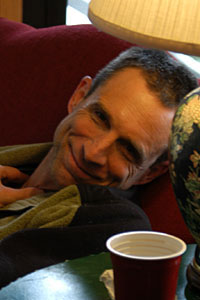 Episode 11 – Blessed John Henry Newman – The University Sermons
Episode 11 – Blessed John Henry Newman – The University Sermons
[powerpress]
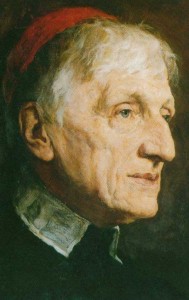 In this episode Dr. Reno examines Blessed John Henry Newman. Â We discuss the substance and influence of the “University Sermons” and in particular sermon #4 “The Usurpations of Reason”
In this episode Dr. Reno examines Blessed John Henry Newman. Â We discuss the substance and influence of the “University Sermons” and in particular sermon #4 “The Usurpations of Reason”
Click here to view Sermon #4
“Christian Apologetics with Dr. R. R. Reno” explores numerous facets of faith and reason in the life of the Church and the world. Grounded on the work of giants, such as St. Thomas Aquinas, St. Bonaventure, Blessed John Newman, Â Blessed John Paul II, G. K. Chesterton, Blaise Pascal and Stephen Barr, Dr. Reno helps us to open our minds to make the journey to our hearts.
R. R. Reno is the editor at First Things: A Journal of Religion, Culture, and Public Life, and Professor of Theology, currently on leave from Creighton University. His theological work has been published in many academic journals. Essays and opinion pieces on religion, public life, contemporary culture, and current events have appeared in Commentary, and the Washington Post. In Fighting the Noonday Devil Reno suggests that putting ourselves at the disposal of what is real is what trains us for true piety. His other recent books include Genesis: Brazos Theological Commentary on the Bible and Sanctified Vision: An Introduction to Early Christian Interpretation of the Bible.
Tags: catholic, catholic podcast, catholic prayer, cathollc spirituality
This entry was posted on Monday, November 17th, 2014 at 1:12 pm
You can follow any responses to this entry through the RSS 2.0 feed.
I love “The Genesis of Science: How the Christian Middle Ages Launched the Scientific Revolution”! 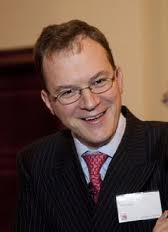 James Hannam has written a fascinating study of the Christian Middle Ages and its foundational importance to the science of our day. He’s brought back the important contributions of half-forgotten thinkers. James demonstrates how they were brought to such a state because of the political agendas of the last 500 years. Why is this important? Because it has everything to do with fundamental Truth, and what is ordered in the Universe. And at the heart, it is faith in God which drives science and it’s healthy functioning in society and culture. It was, and should be today, rooted in the Christian understanding of faith, reason, philosophy, theology and all the other things that round out the wholeness of the human person and the created world. Fascinating stuff indeed!
James Hannam has written a fascinating study of the Christian Middle Ages and its foundational importance to the science of our day. He’s brought back the important contributions of half-forgotten thinkers. James demonstrates how they were brought to such a state because of the political agendas of the last 500 years. Why is this important? Because it has everything to do with fundamental Truth, and what is ordered in the Universe. And at the heart, it is faith in God which drives science and it’s healthy functioning in society and culture. It was, and should be today, rooted in the Christian understanding of faith, reason, philosophy, theology and all the other things that round out the wholeness of the human person and the created world. Fascinating stuff indeed!
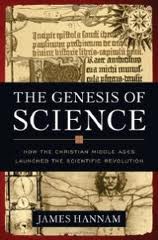 Be sure to visit James’ website.
Be sure to visit James’ website.
Click here to pick up a copy of the book
[powerpress]
Tags: catholic, catholic podcast, catholic prayer, cathollc spirituality
This entry was posted on Sunday, November 16th, 2014 at 7:11 pm
You can follow any responses to this entry through the RSS 2.0 feed.
The Sunday, Sunday, Sunday Podcast is a reflection on the upcoming Sunday Mass readings presented by LifeTeen.com and hosted by Mark Hart.
Sunday Readings from the USCCB
Reading 1 Â WIS 3:1-9
Responsorial Psalm PS 23:1-3A, 3B-4, 5, 6
Reading 2  ROM 5:5-11 or ROM 6:3-9
Gospel JN 6:37-40
Lectionary for Mass for Use in the Dioceses of the United States, second typical edition, Copyright © 2001, 1998, 1997, 1986, 1970 Confraternity of Christian Doctrine;
Tags: catholic, catholic podcast, catholic prayer, cathollc spirituality
This entry was posted on Sunday, November 2nd, 2014 at 9:52 am
You can follow any responses to this entry through the RSS 2.0 feed.
 Show 52 ” Building a Kingdom of Love” –   The Poor/Holy Souls and Purgatory
Show 52 ” Building a Kingdom of Love” –   The Poor/Holy Souls and Purgatory
[powerpress]
Msgr. Esseff reflects on the teaching of the Sacred Scriptures and on how we pray for the Poor Souls in Purgatory:
Reading 1 Wis 3:1-9
The souls of the just are in the hand of God,
and no torment shall touch them.
They seemed, in the view of the foolish, to be dead;
and their passing away was thought an affliction
and their going forth from us, utter destruction.
But they are in peace.
For if before men, indeed, they be punished,
yet is their hope full of immortality;
chastised a little, they shall be greatly blessed,
because God tried them
and found them worthy of himself.
As gold in the furnace, he proved them,
and as sacrificial offerings he took them to himself.
In the time of their visitation they shall shine,
and shall dart about as sparks through stubble;
they shall judge nations and rule over peoples,
and the LORD shall be their King forever.
Those who trust in him shall understand truth,
and the faithful shall abide with him in love:
because grace and mercy are with his holy ones,
and his care is with his elect.
Msgr. John A. Esseff is a Roman Catholic priest in the Diocese of Scranton. He was ordained on May 30th 1953, by the late Bishop William J. Hafey, D.D. at St. Peter’s Cathedral in Scranton, PA. Msgr. Esseff served a retreat director and confessor to Blessed Mother Teresa.   He continues to offer direction and retreats for the sisters of the missionaries of charity around the world. Msgr. Esseff encountered St.  Padre Pio,  who would become a spiritual father to him. He has lived in areas around the world,  serving  in the Pontifical missions, a Catholic organization established by Bl. Pope John Paul II to bring the Good News to the world especially to the poor. Msgr. Esseff assisted the founders of the Institute for Priestly Formation and continues to serve as a spiritual director for the Institute. He continues to  serve as a retreat leader and director to bishops, priests and sisters and seminarians and other religious leaders around the world.  Â
To obtain a copy of Msgr. Esseff’s book byvisiting here
Be sure to visit Msgr. Esseff’s website “Building a Kingdom of  Love”
Tags: catholic, catholic podcast, catholic prayer, cathollc spirituality
This entry was posted on Sunday, November 2nd, 2014 at 9:34 am
You can follow any responses to this entry through the RSS 2.0 feed.
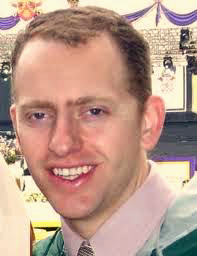
Faith Check/Greg Youell
Purgatory
[powerpress]
Few Catholic doctrines are more disputed than that of purgatory. And yet, if it is properly understood, we see that purgatory is a gift of God’s mercy.Â
Jesus did not come to merely forgive the penalty for our sins, but to cleanse us and make us His new creations.
Revelation 21:27 says, “nothing impure will enter heaven.â€Â Those of us who die in a state of grace—or are “savedâ€â€”and still have selfishness and sin remaining on our souls, must undergo a purification before entrance into heaven is possible.
So purgatory is not a second chance at heaven, but simply a final stage of growing in holiness.
Notice that Jesus in Matthew 12 speaks of sins that will “not be forgiven in this age or in the age to come.†1 And in 1 Corinthians 3, St. Paul writes that on Judgment Day there will be some who “suffer loss… [they will still] be saved, but only as through fire.â€2
C.S. Lewis, the famous Anglican Christian writer, believed in purgatory and compared it to the burning sensation of mouthwash after having one’s tooth pulled at the dentist’s office.3
Indeed, while purgatory may involve pain, it will not be without joy, for it is the threshold to the gates of paradise.
1 -Â 12:32
2 -Â 3:15
3 -Â Letters to Malcolm: Chiefly on Prayer, 107-109.
Tags: catholic, catholic podcast, catholic prayer, cathollc spirituality
This entry was posted on Sunday, November 2nd, 2014 at 1:05 am
You can follow any responses to this entry through the RSS 2.0 feed.
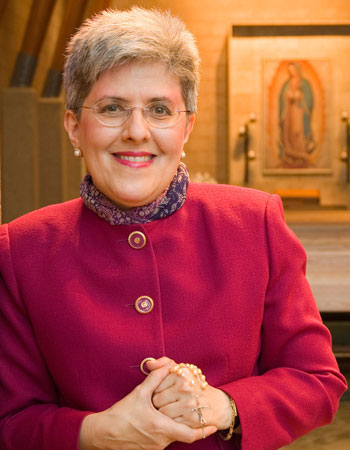 No one I know has the passion, zeal and just shear love for the Holy Souls in Purgatory like Susan Tassone! She has an incredible depth of knowledge on the subject. You will never feel you are without companinons on the journey after you hear Susan plead the Holy Souls cause.
No one I know has the passion, zeal and just shear love for the Holy Souls in Purgatory like Susan Tassone! She has an incredible depth of knowledge on the subject. You will never feel you are without companinons on the journey after you hear Susan plead the Holy Souls cause.
[powerpress]
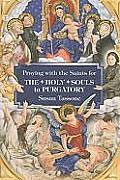 Â You can find the book here
 You can find the book here
Let the saints inspire you to intercede for the holy souls in purgatory!
Throughout the ages the devotions, prayers, and practices of the Communion of Saints have been offered up on behalf of souls in purgatory, the Church Suffering. The saints ardent desire to intercede for the holy souls impelled them to pray ceaselessly for their eternal rest.
This inspiring book shows how you can join the saints in this act of divine charity, thereby attaining spiritual gifts for acts done for the souls that cry out to us for relief.
–See the firsthand experiences that saints have had with the holy souls
–Learn the power of intercessory prayer on behalf of souls in purgatory
–Seasonal Devotions & Spiritual Aids prepare all members of the family to plead the cause of souls
Tags: catholic, catholic podcast, catholic prayer, cathollc spirituality, holy souls, holy souls in purgatory, Susan Tassone
This entry was posted on Sunday, November 2nd, 2014 at 12:42 am
You can follow any responses to this entry through the RSS 2.0 feed.
I love talking with John Salza…tough doctrine and dogma that for most of us is difficult to explain, is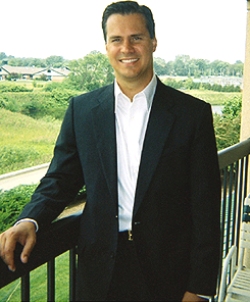 just so easy for John. And he shares his knowledge with all of us…what a gift!
just so easy for John. And he shares his knowledge with all of us…what a gift!
John’s website is www.scripturecatholic.com
[powerpress]
From the book description:
In The Biblical Basis for Purgatory, John  offers the definitive scriptural explanation of this distinctively Catholic doctrine. Building on the teachings of Christ and St. Paul, he shows how the existence of a place of temporal punishment after death is not only a logical extension of what we know about the reality of sin and God’s justice, but is also a supreme expression of God’s love and mercy. Although Purgatory is a place of mercy, its pains are real, and they are severe. This book does more than defend and explain Purgatory it provides a solid plan, drawn from the Church s perennial wisdom for conquering our sins by God s grace, while still on earth.
Tags: biblical basis, catholic, catholic podcast, catholic prayer, cathollc spirituality, john salza, purgatory
This entry was posted on Sunday, November 2nd, 2014 at 12:32 am
You can follow any responses to this entry through the RSS 2.0 feed.
“The holy souls are eager for the prayers of the faithful, which can gain indulgences for them. Their intercession is powerful. Pray unceasingly. We must empty purgatory!”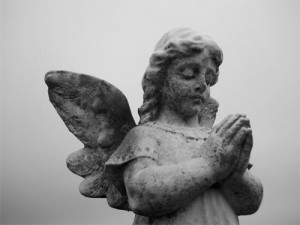
– St. Padre Pio
[powerpress ]
Sunday
O Lord God almighty, I beseech Thee,
by the precious blood
which Thy Divine Son Jesus shed in the garden,
deliver the souls in purgatory,
and especially that one which is the most forsaken of all;
and bring it to Thy glory,
there to praise and bless Thee forever.
Amen.
Tags: catholic, catholic podcast, catholic prayer, cathollc spirituality
This entry was posted on Sunday, November 2nd, 2014 at 12:19 am
You can follow any responses to this entry through the RSS 2.0 feed.
The Novena for Holy Souls in Purgatory, Day 9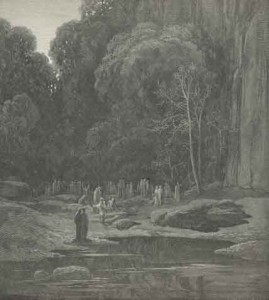
composed by by St. Alphonsus of Liguori
[powerpress]
My God! How was it possible that I, for so many years, have borne tranquilly the separation from Thee and Thy holy grace! O infinite Goodness, how long-suffering hast Thou shown Thyself to me! Henceforth, I shall love Thee above all things. I am deeply sorry for having offended Thee; I promise rather to die than to again offend Thee. Grant me the grace of holy perseverance, and do not permit that I should ever again fall into sin. Have compassion on the holy souls in Purgatory. I pray Thee, moderate their sufferings; shorten the time of their misery; call them soon unto Thee in heaven, that they may behold Thee face to face, and forever love Thee. Mary, Mother of Mercy, come to their aid with thy powerful intercession, and pray for us also who are still in danger of eternal damnation.
Say the following prayers: 1 Our Father… 1 Hail Mary… The Prayer to Our Suffering Saviour for the Holy Souls in Purgatory found below.
Visit the Discerning Hearts “Holy Souls†page for the complete novena and text of the prayers
Tags: catholic, catholic podcast, catholic prayer, cathollc spirituality, heaven, holy souls, holy souls in purgatory, intercession, prayers, purgatory, sin, souls in purgatory
This entry was posted on Saturday, November 1st, 2014 at 12:01 am
You can follow any responses to this entry through the RSS 2.0 feed.


